May Outturn 2022 Feature Article
One subject or conversation topic that instantly gets most whisky enthusiasts energised is the (seemingly) outrageously cheap prices that rare or old whisky sold for just 15–20 years ago. Indeed, if you can track down bottling lists, sales catalogues, or advertisements from the early 2000s, you’ll be amazed at how relatively little we were paying for old Macallans, rare Port Ellens and Broras, collectible Springbanks, and pretty much any Japanese whisky.
Even if you take a generous 3% per annum for CPI and apply it with a nod to the Australian dollar’s exchange rate, inflation, and a host
of other tangible, influencing parameters, you won’t even get close to the ridiculous, exponential price increases that have occurred over the last 10 years.
The secondary market
So what happened? What strange, all-powerful switch got flicked that turned bottles retailing for $150 into whiskies that now retail for $600-$800? What strange phenomenon occurred that turned whiskies retailing for $250–$300 bottles into malts that now retail for $1,000, $5,000, and $10,000? Why did a 1948 Macallan retail for just $350 in Sydney in 2003, but a 50yo Balvenie now retails for $58,000?

The answer is disarmingly simple: The secondary market. The secondary market has corrupted the primary market.
The secondary market has always existed, however, it’s actually the internet and, specifically, online whisky auctions that have been the primary force driving up prices, together with smaller, secondary influencing factors. And, inherent in all of that: The flipper.
“The secondary market has always existed, however, it’s actually the internet and, specifically, online whisky auctions that have been the primary force driving up prices.”
Prior to the internet and the rise of online whisky groups, forums, and social media, our whisky communities were small and isolated. There simply wasn’t the infrastructure, mechanisms, and reach that could facilitate larger audiences, drive demand, and permit peer-to-peer sales across borders and territories. Online whisky auctions — effectively a disrupter — changed the game. One of the central pillars of business when selling a product is to charge what the market will bear. Online whisky auctions demonstrated to producers, bottlers, and retailers around the world that the market could evidently bear a lot more than they’d previously given it credit for.
You can imagine the frustration and indignance of the sales and marketing team behind your typical whisky brand: After careful planning and promotion, and after agonising over what RRP to set, they launch their new product to the market and see it sell out almost immediately. Then, in the weeks that follow, many of those sold-out bottles start appearing on online auctions and private sales platforms, where they end up selling for two, three, even four times the original RRP.
 There are well-documented instances of sold-out products appearing on online sales platforms at greatly inflated prices the very next day after the original, official launch and retailer sold out. (It happens repeatedly at the Feis Ile festival nearly every year!) Imagine producing, marketing, and selling your product for $190, only to see a flipper sell it for $600 just a few days later. Little wonder, then, that the brand sets a much higher price when they subsequently come to release their next product. Play that sequence out over multiple brands, multiple products and releases, multiple markets, and the aggregating effect of the last ten years…and you can suddenly see why RRP’s for high-demand whiskies have gone through the roof. We got here by way of a thousand cuts.
There are well-documented instances of sold-out products appearing on online sales platforms at greatly inflated prices the very next day after the original, official launch and retailer sold out. (It happens repeatedly at the Feis Ile festival nearly every year!) Imagine producing, marketing, and selling your product for $190, only to see a flipper sell it for $600 just a few days later. Little wonder, then, that the brand sets a much higher price when they subsequently come to release their next product. Play that sequence out over multiple brands, multiple products and releases, multiple markets, and the aggregating effect of the last ten years…and you can suddenly see why RRP’s for high-demand whiskies have gone through the roof. We got here by way of a thousand cuts.
Close to home
Sadly, the stain of whisky auctions and the stench of the flipper has touched the Society here in Australia. We have, amongst our ranks, a number of members who have recently purchased some of the Society’s high-demand bottles on Outturn release day, and then flipped them for profit on a local auction site the following month. And this is where the discussion gets curly…
Yes, we live in a democracy and in a free, capitalist society. Many will argue that if you purchase a bottle of whisky, it is yours to do what you wish with it. You are entirely within your rights to sell it on, notwithstanding the legal requirements around the selling of alcohol. However, for those that deliberately and strategically buy a highly-limited, members-only bottling, and then sell it at an inflated price for profit in the following days/weeks to a market of disappointed members (and/or non-members) who originally missed out, I take a very dim view. That is not flipping. It is scalping. And it seems we have some scalpers amongst our membership.
I concede that we, the Society, are in an awkward situation. We celebrate the joy of the single cask and, in doing so, we celebrate
a product that is, by definition, rare, limited and finite. We deal with whiskies for which there may only be 200 bottles on the planet and, occasionally, as few as 18-24 bottles in this country. There is inherent demand from the get-go, and some will argue rarity is our currency. But I beg to differ. I can tell you from experience — 17 years now as a Director of the Society and as our branch’s whisky manager — that if you miss something on Outturn, there is always another gem just around the corner. We are not a retailer. We are a club. We are made up of members. Members choose to join this club and, with that, comes an expectation of adhering to and abiding by the ethos of the club. Scalping bottles is not part of that ethos.
The scalping dilemma
When we released the two inaugural Australian casks last year, 147.1 and 148.1, we pushed hard to make them as affordable as possible,

cutting into already-small margins and absorbing costs so that as many members as possible would have the chance to share the joy. Like the many brands and producers before us, you can imagine our dismay at seeing some members miss out, only for a handful of members who did acquire a bottle to scalp them just a few weeks later for profit. So what should I do next time we release a particularly rare, highly sought-after cask? Should I increase the members’ price to a higher amount, knowing that the market can and will bear it? Will raising the price reduce the likelihood of seeing bottles scalped? Is that fair to the vast, vast majority of members who join and exist in our club for the purposes of drinking, enjoying, and sharing good whisky? To the scalpers in our midst: Is it fair that you denied other members the chance to enjoy a whisky by purchasing a bottle that you had absolutely no intention of drinking yourself? Hmmm…
The topic has been touched on occasionally in the discussions on our Facebook Group. There have been calls by some to revoke the membership of those found to be scalping. There have been suggestions by others that we should mark, deface, or laser-etch our high-demand bottles so that they can be traced back to the original purchasing member. I’m not sure we quite want to entertain that notion at this stage, but – if I’m reading the room correctly – the sentiment amongst the majority of members seems clear: Whisky is for drinking and sharing.
I’m aware this subject is controversial. I’m aware some people are reading this and strongly disagreeing with me. I am likely making myself unpopular. If you disagree with me, that’s fine; that’s your right. Equally, it’s my right to think ill of flippers. We want to share our whiskies with as many members as possible, with prices that reflect good value — not their rarity, or collectability, or “on-sellability.” The Society was founded by a bunch of whisky lovers who gathered in an apartment in Edinburgh and shared the contents of a single cask. That is what, why, and how we exist. I will continue to champion the spirit and conviviality on which the Australian branch was founded. I’d ask all members to do the same.








